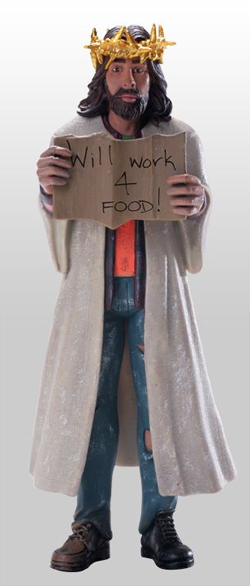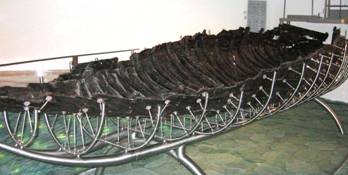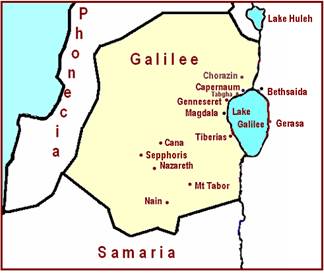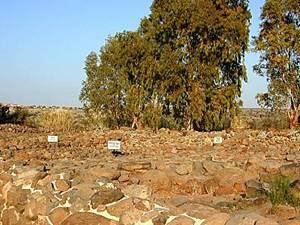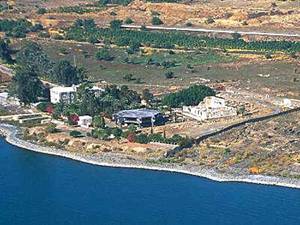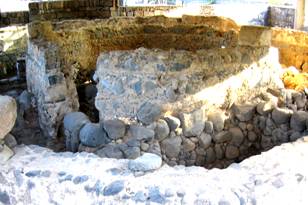razzelflabben
Contributor
Easy G (G²);54131347 said:????it is a stretch to say that if the disciples didn't know where Jesus house was, they either weren't as close to Him as they thought and we are told, or He didn't own the house....I mean, how is it reading into the text to say that if 12 guys are with a dude every single day, intimate with him, that they don't know where His house is....you honestly don't think they never got to gether at Jesus house to party, eat together, play scrabble, wait for Him to change His clothes...what I said is that it is unreasonable to think that 12 guys that close to Jesus would not know where He lived, if indeed the house was His and not just a lodging He was using for the season. If you want to disagree, show how that is unreasonable to assume...even for the culture of the day.Easy G (G²);54131343 said:Continued from before
Again, you may be reading more into the text than warranted----as if Jesus was known EVERYWHERE the moment he called his disciples to follow him or as if people all knew where he was at. Unless, of course, one can show from the text and culture that EVERYONE in the towns Jesus lived/traveled in knew where his residence was at.so you really think that it is reasonable for your close friends and confidents to not know where you live? Okay then, and you accuse me of reading into the text what is not there. None of my close friends and confidants do not know where I live, they all know, I don't even try to keep it a secret from them, in fact, it is a common question asked very early on in a relationship that is becoming close. But if you really think that is an odd thing to know about someone close to you, I don't really know what to say, I hope your family never moves without telling you where they are moving to, because these men were like a family with one another and you want me to believe that you are not reading into the text to assume that Jesus might have moved without telling them He was or where He was going....got a question for you, if Jesus was intending to keep His home a secret, why did they ask, expecting and answer and why did Jesus who had been keeping the secret, suddenly tell them?But apart from that, it seems you're making an argument based on the logical fallacy of argument via personal incredulity/disbelief---that is, because you cannot believe something to be true, it must not be. And that seems to do damage to the text---as the bottom line is that in John 1, the disciples asked clearly where Jesus was staying when he came to them. That is an indication of wondering where someone lives at-----and no wonder, seeing the amount of people in a town and how some may have kept to themselves.now there has been a lot of talk about flaming, and this could be considered your attempt to attack my character, so I'm gonna hope your above all that.Don't have to---as you've already made clear where you stand and that you're not really concerned with seeing or considering otherwise.???? and so????? how does any of that counter what I said?????But on the issue of Matthew 13, there's a context...as the DAY before he "went out of the house", the parallel account of Mark 3:31-34 was clear that his mothers and brothers came for him in the area and he dealt with it (seeing that they lived in the area, most likely in the home Jesus was at--and hence, why it was such a scene when they came to find the house OVER-CROWDED and Jesus akin to a "Super-Star", to which they said "He has lost his mind in Mark 3:31....and as Mark 1 says even more clearer, there was a huge revival in town and it interrupted his time of GOING HOME to eat/fellowship (as he had just gotten done choosing the 12 discipleswow! I am the one who said that it was possible that He was renting (or at least I suggested it) it is also possible that He was invited to stay with a friend and accepted...what is not of high probability is that He owned the home, because if He had owned it, those close to Him would most likely have known where it was....Mark 3:13-35No one said anything about the option being out that he had close friends/family whom he had connections with. But the text makes clear that Jesus in Mark 3:20 returned home....i.e., to the place where he stayed in Capernum. And on the same token, I'd say that it's important that you'd not leave out/dismiss the options you do not like (i.e. the idea of Jesus owning or renting)
The Appointing of the Twelve Apostles
13Jesus went up on a mountainside and called to him those he wanted, and they came to him. 14He appointed twelvedesignating them apostles[a]that they might be with him and that he might send them out to preach 15and to have authority to drive out demons. 16These are the twelve he appointed: Simon (to whom he gave the name Peter 17 James son of Zebedee and his brother John (to them he gave the name Boanerges, which means Sons of Thunder); 18Andrew, Philip, Bartholomew, Matthew, Thomas, James son of Alphaeus, Thaddaeus, Simon the Zealot 19and Judas Iscariot, who betrayed him.Jesus and Beelzebub
20Then Jesus went home, and again a crowd gathered, so that he and his disciples were not even able to eat. 21When his family heard about this, they went to take charge of him, for they said, "He is out of his mind." 22And the teachers of the law who came down from Jerusalem said, "He is possessed by Beelzebub[b]! By the prince of demons he is driving out demons."
23So Jesus called them and spoke to them in parables: "How can Satan drive out Satan? 24If a kingdom is divided against itself, that kingdom cannot stand. 25If a house is divided against itself, that house cannot stand. 26And if Satan opposes himself and is divided, he cannot stand; his end has come. 27In fact, no one can enter a strong man's house and carry off his possessions unless he first ties up the strong man. Then he can rob his house. 28I tell you the truth, all the sins and blasphemies of men will be forgiven them. 29But whoever blasphemes against the Holy Spirit will never be forgiven; he is guilty of an eternal sin."
30He said this because they were saying, "He has an evil spirit."
Jesus' Mother and Brothers
31Then Jesus' mother and brothers arrived. Standing outside, they sent someone in to call him. 32A crowd was sitting around him, and they told him, "Your mother and brothers are outside looking for you." 33"Who are my mother and my brothers?" he asked.
34Then he looked at those seated in a circle around him and said, "Here are my mother and my brothers! 35Whoever does God's will is my brother and sister and mother."
nothing in that equals that He owned the house.Mark 2If looking in Mark 2:1, it makes clear that Jesus was returning home from his time of preaching/ministry throughout GALILEE TO Capernum (c.20 miles [32km] northeast of Nazareth)..which serves as the base for his Galilean ministry. As occurred earlier, after he came from the home of Simon and Andrew in Mark 1:29-34,
Jesus Heals a Paralytic
1A few days later, when Jesus again entered Capernaum, the people heard that he had come home. 2So many gathered that there was no room left, not even outside the door, and he preached the word to them.no problem for what I said....Jesus, though originally was mobile, later began a traveling ministry...and with the phrase "at home", many credible scholars make clear that it most likely means Jesus is currently living in Capernum at the time it was spoken. As the man was a Carpenter, additionally, Jesus could have easily found work for himself in making places to live---as well as being on the level of carpenter who were contractors/living differing places (much like today when one is a contractor/carpenter and making houses for others but at times living in what may be a temporary "project").
Mark 1:35-38
35Very early in the morning, while it was still dark, Jesus got up, left the house and went off to a solitary place, where he prayed. 36Simon and his companions went to look for him, 37and when they found him, they exclaimed: "Everyone is looking for you!" 38Jesus replied, "Let us go somewhere elseto the nearby villagesso I can preach there also. That is why I have come. 39So he traveled throughout Galilee, preaching in their synagogues and driving out demons.Hummmm....a family home with lots of brothers and sisters who are not contributing to the family wealth? I would love that culture, my brother would be supporting us right now, and we wouldn't have to work....how cool is that!!!!! oh, and while your trying to work your way out of that pickle you made for yourself, try showing me how the culture did not use home to indicate country, city, etc....I'd love to see that, especially with verses like...Luke 4:24 where the strong's reference says that country can also mean, fixed abode or home.........Of course there are differing usages of the word "home"---but on the issue, what cannot be missed is the fact that because there are differing usages of the term "Home" today in our cultural context, it does not logically follow that they had the same kind of dynamics back in the days of Christ--especially if already making clear one does not believe (nor is inclined to) that Jesus owned a house. And in Jewish culture As it is, seeing that he had many brothers/sisters to take care of as the ELDEST brother since his father Joseph died, it was incumbent upon the oldest male to ensure his own family had a place of residence/ability to be taken care of.
1) one's native country
a) one's fatherland, one's own country, a fixed abode or home
b) one's own native place i.e. a city
Upvote
0






